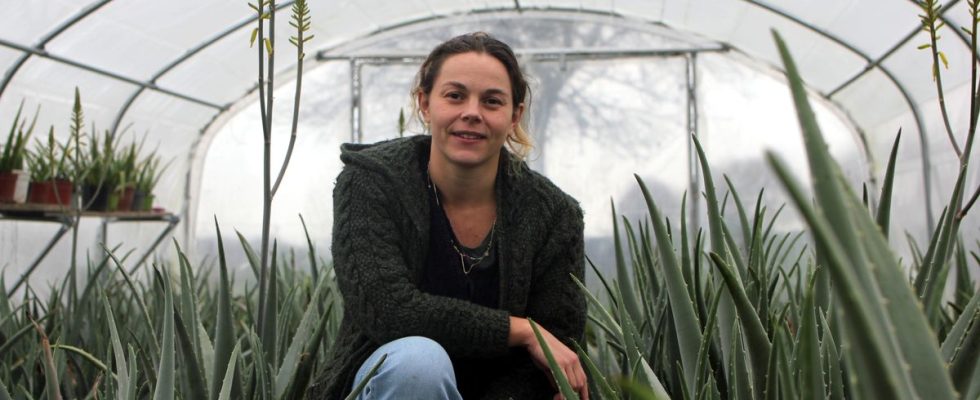His little secret is hidden under a plastic tunnel placed a few meters from his farm. Fortunately spared by storm Ciaran, this greenhouse has for several years housed plants that we are not really used to finding in Brittany. A plant treasure that Laurie Poussier placed there, without really knowing what it would become. To his great surprise, his new aloe vera crop is a great success, despite the vagaries of the much-maligned Breton weather.
Based in La Chapelle-Janson, on the borders of Ille-et-Vilaine and Mayenne, the young farmer wishes to use this plant renowned for its moisturizing power in order to expand her range of cosmetics which she makes with the milk of his cows. “I met a producer who had several aloe vera plants but wanted to get rid of them. I told myself I would collect them to try to grow them, but I had no guarantee that it would work. Aloe vera is a plant that does not like cold or excess humidity. » Suffice to say that Brittany is not really ideal for its development, even if others have already launched before her.
The 80 plants transplanted by the farmer two years ago, however, seem to thrive under the plastic tunnel heated only by the sun. They like it so much that they even has multiple babies which sprout here and there. A proliferation which will allow Laurie to organize a farm sale in order to prevent his greenhouse from transforming into a Mediterranean garden. A way for the young farmer to finance part of the development of her range of cosmetics which she must have tested by certified organizations. Because for two years now, Laurie has spent half her time in her laboratory developing her beauty and hygiene products. By laboratory, we mean a small white prefab from which a discreet but pleasant smell of soap escapes. “Since my partner took over the farm six years ago, I have always wanted us to diversify the dairy activity, to do processing to add value to our milk.”
After training in natural cosmetics and herbalism, she quickly specialized in the design of soaps which she markets in specialized stores or on its website. Make no mistake, 99% of the production of the 100 cows goes into the tanks of the imposing Agrial cooperative. But for two years now, Laurie has allowed herself to take a few kilos of white gold to make her soaps based on olive oil, camelina, farm honey and even calendula. “Not many of us in France use cow’s milk to make soap. It may not be the sexiest but it remains one of the richest so it is ideal for superfatted soaps for example. »
“Not always easy” to stay French
If it remains modest, the small peasant soap factory of Atelier du Tilleul has already found its audience, to the point that Laurie would like to develop it in the little free time that her life as a mother on the farm leaves her.

A fervent defender of the French agricultural model, the young breeder remains ambitious to work with French products, if possible by sourcing from around her home, which has allowed her to obtain the “slow cosmetics” label. “It’s not always easy to limit myself to French ingredients because I have to do without things like coconut oil or shea oil. But it was my choice. » It was in this short circuit approach that she wanted to start growing aloe vera. Before long, Laurie will be able to integrate the precious gel of the Mediterranean plant to expand its range of products to include a day cream. And why not a deodorant, if she can manage it. With the secret dream of transforming the old farmhouse into a large manufacturing and initiation workshop.

